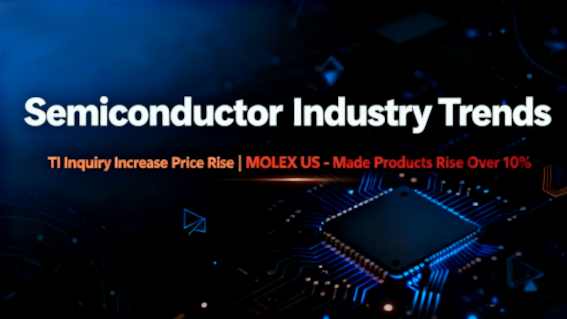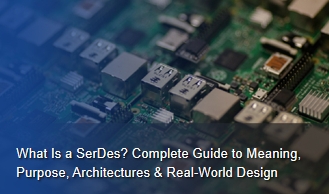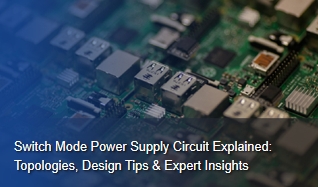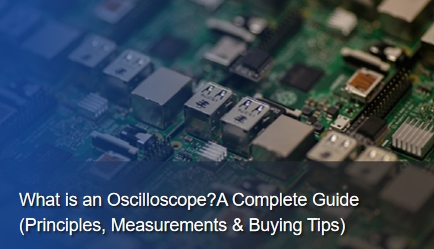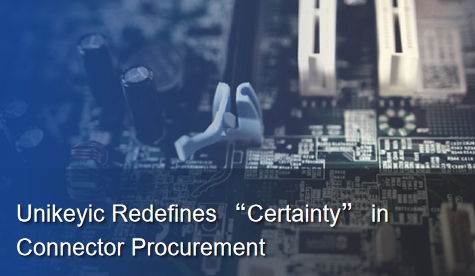Maximizing Efficiency: An In-Depth Look at DC-DC Controllers
Introduction to DC-DC Controllers
DC-DC controllers are essential components in power electronics, designed to convert one DC voltage level to another efficiently. They play a critical role in voltage regulation and conversion, ensuring that electronic devices receive the correct voltage levels needed for optimal performance. As the demand for portable and battery-powered devices continues to rise, the importance of DC-DC controllers in modern electronics has grown significantly.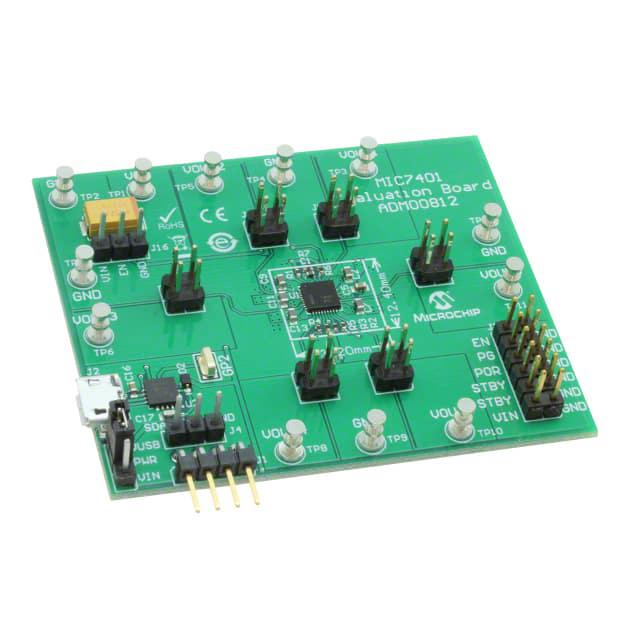
In today's world, where energy efficiency and miniaturization are paramount, DC-DC controllers have become indispensable in powering low-voltage devices. These controllers enable the use of batteries more effectively, extending the battery life of gadgets and reducing energy consumption in various applications.
Working Principles of DC-DC Controllers
DC-DC controllers operate by converting a direct current (DC) input voltage to a different DC output voltage. They achieve this through three main operations:Step-Up (Boost) Operation: This increases the input voltage to a higher output voltage, which is useful in applications where a higher voltage is needed from a lower voltage source, such as in battery-powered devices.Step-Down (Buck) Operation: This decreases the input voltage to a lower output voltage, commonly used in devices that require a stable, lower voltage supply from a higher voltage source.Buck-Boost Operation: This can either increase or decrease the input voltage to achieve the desired output voltage, providing flexibility in applications where the input voltage may vary.
DC-DC controllers maintain efficiency by minimizing power loss during conversion, using techniques like pulse-width modulation (PWM) to control the switching of transistors and optimize energy transfer.
Types of DC-DC Controllers
Synchronous vs. Non-Synchronous ControllersSynchronous Controllers: These use two active switches (usually MOSFETs) to improve efficiency, particularly at lower output voltages and higher currents. They are favored in applications where energy efficiency is critical.Non-Synchronous Controllers: These use a diode instead of a second active switch, making them simpler and less expensive but often less efficient than synchronous controllers.
Isolated vs. Non-Isolated ControllersIsolated Controllers: Provide electrical isolation between input and output, which is crucial in applications requiring safety and noise reduction, such as medical devices and industrial systems.Non-Isolated Controllers: These are used where isolation is not required, offering a simpler design and often better efficiency for portable electronics and general-purpose applications.
Multi-Phase Controllers
Multi-phase DC-DC controllers are used in high-power applications to distribute the load across multiple phases, reducing thermal stress and improving transient response. They are commonly used in server power supplies and high-performance computing systems.
Key Features and Benefits
DC-DC controllers offer several important features and benefits:High Conversion Efficiency: Minimizing power loss is crucial for extending battery life and reducing energy consumption.Fast Transient Response: Quickly responds to changes in load conditions, ensuring stable output voltage.Adjustable Output Voltage: Allows for flexibility in meeting specific voltage requirements for different applications.
Size Reduction: Enables compact designs, essential for modern electronic devices where space is limited.
Applications of DC-DC Controllers
Portable ElectronicsDC-DC controllers are widely used in smartphones, tablets, and laptops to manage power efficiently and extend battery life. They ensure these devices operate within their required voltage ranges, providing stability and performance.
Renewable Energy SystemsIn solar power converters and battery management systems, DC-DC controllers are essential for maximizing energy conversion efficiency and managing power storage effectively.
Data Centers
DC-DC controllers play a critical role in data centers, where efficient power distribution is necessary to manage the energy consumption of servers and networking equipment.
Design Considerations for DC-DC Controllers
When designing with DC-DC controllers, several factors should be considered:Switching Frequency: Affects the size of the external components and overall efficiency. Higher frequencies allow for smaller inductors and capacitors but may reduce efficiency.Output Ripple: The ripple voltage should be minimized to ensure stable operation of sensitive electronic components.Load Regulation: Ensures that the output voltage remains constant despite variations in the load.
Inductor and Capacitor Selection
The choice of inductors and capacitors is crucial for optimizing performance, affecting the stability, efficiency, and size of the power supply design.
Challenges and Solutions
Electromagnetic Interference (EMI)EMI can disrupt the performance of electronic systems. Proper layout design and the use of filters can help mitigate these effects.
Thermal ManagementManaging heat in high-power applications is critical. Adequate heat sinks and thermal pads are necessary to dissipate heat efficiently.
Layout Constraints
Compact designs may face challenges in component placement and trace routing. Careful PCB design is essential to ensure reliability and performance.
Technological Advancements in DC-DC Controllers
Recent advancements include:Digital Control Techniques: Allow for precise control and monitoring of power supply parameters, improving efficiency and performance.Smart Power Management: Integration with microcontrollers for adaptive power management based on system demands.
Silicon Carbide (SiC) and Gallium Nitride (GaN) Technologies: These materials offer higher efficiency and performance, particularly in high-voltage and high-temperature applications.
Comparison with AC-DC Controllers
While both DC-DC and AC-DC controllers manage power conversion, DC-DC controllers are specifically used for regulating DC voltage levels, making them more suitable for battery-powered and portable devices. AC-DC controllers convert AC to DC, typically used in devices that are plugged into an AC power source.
Future Trends in dc-dc controller Technology
Future developments are expected to focus on:Increased Integration with Microcontrollers: For more intelligent power management solutions.Advanced Sensing Capabilities: To provide real-time feedback and optimize performance.
Emerging Applications: Such as electric vehicles and wearable technology, where efficient power management is crucial.
Practical Tips for Engineers and Designers
Selecting the Right Controller: Consider application requirements, efficiency, and power ratings.Testing and Optimization: Regularly test the power supply design under various conditions to ensure optimal performance.
Prototyping: Use prototyping tools and development kits to refine designs before mass production.
Recommended Brands and Suppliers
Reputable BrandsMicrochip Technology: Known for its robust and reliable DC-DC controllers suitable for various applications.FLEX POWER: Offers innovative solutions with a focus on energy efficiency and compact designs.
Murata Manufacturing: Provides high-quality components with advanced features for enhanced performance.
Trusted Suppliers
unikeyic Electronics: Offers a comprehensive range of DC-DC controllers and technical support, ensuring reliable sourcing for diverse application needs.In conclusion, DC-DC controllers are vital components in modern electronics, offering efficient power conversion and management solutions across various applications. With advancements in technology, these controllers continue to evolve, providing improved performance and enabling new possibilities in electronic design.


